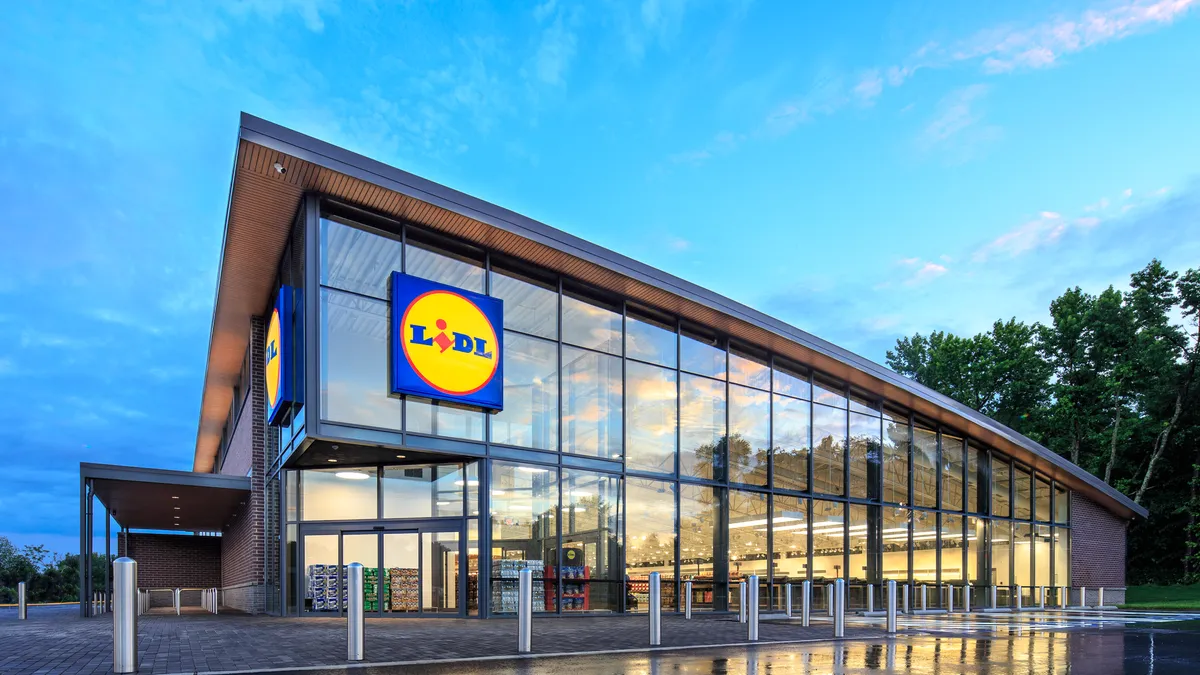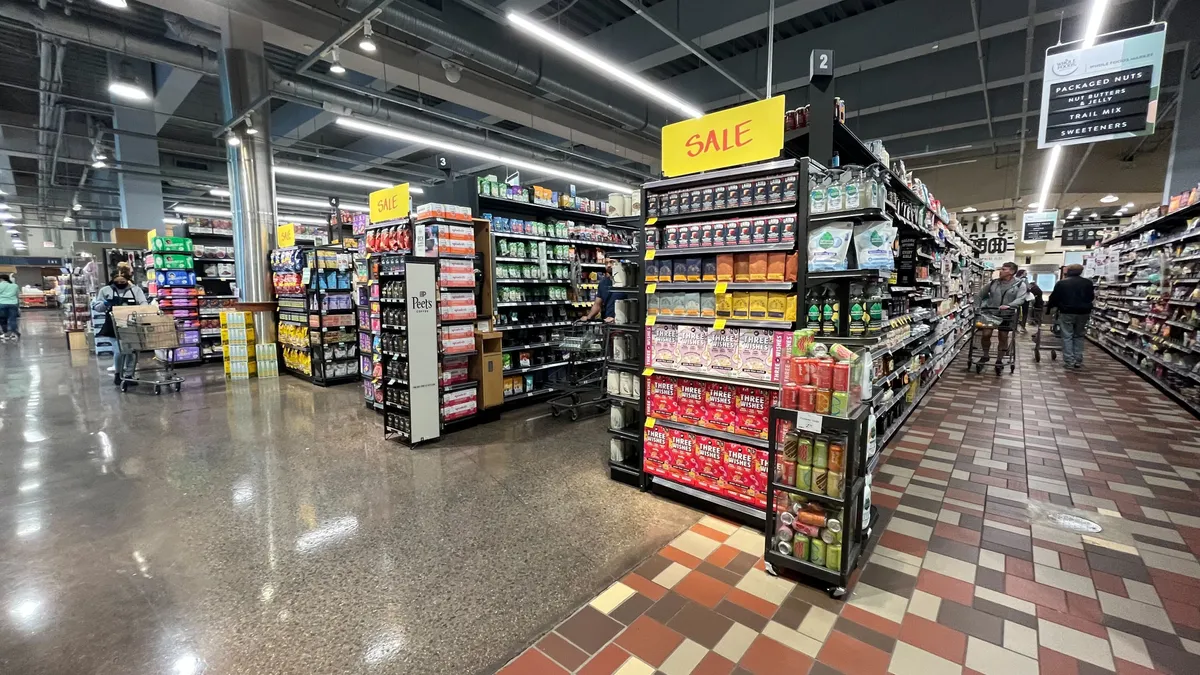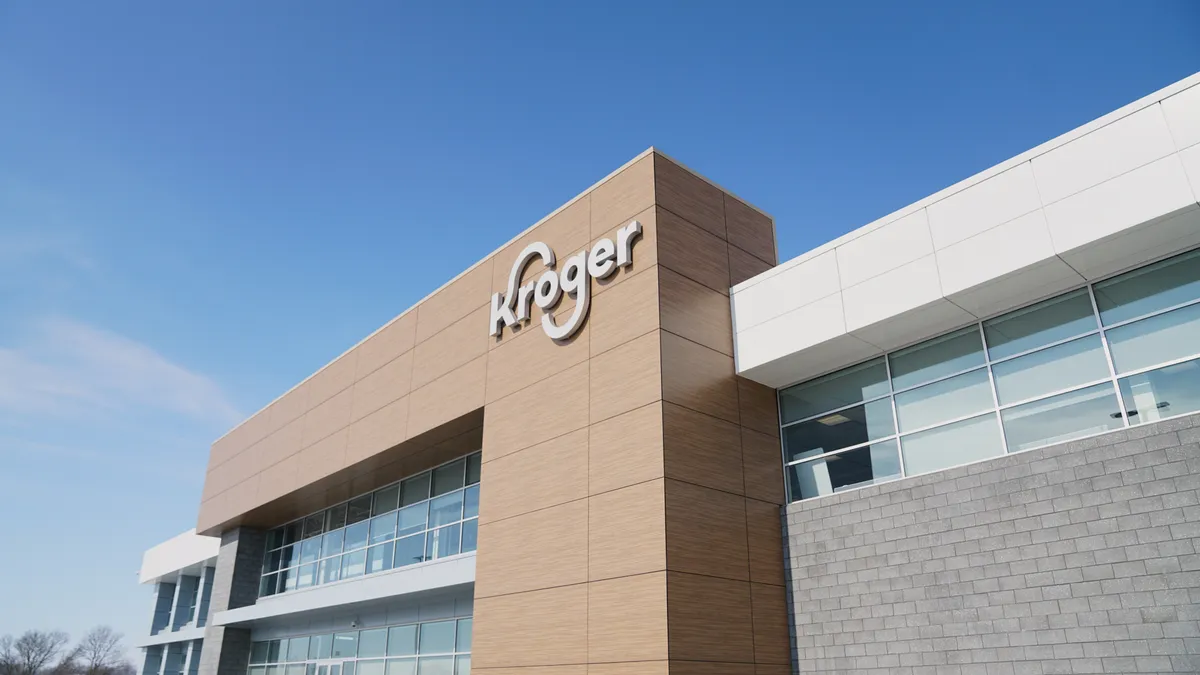Dive Brief:
- Lidl isn’t very price competitive on packaged grocery items but is undercutting competitors by as much as 39% in premium fresh products like organic milk, eggs and produce, according to The Hartman Group. The firm checked Lidl’s prices against Walmart, Aldi and Food Lion stores in Virginia Beach and Rocky Mount, North Carolina in mid-July.
- Hartman noted in a recent white paper that Lidl should increase its selection of premium fresh products, which, in addition to having a price advantage, can also drive traffic for the discounter. In the Virginia Beach market a selection of premium products from Lidl were 10% cheaper than the same items at Walmart and 3% cheaper than Aldi.
- Hartman said the chain is “overly invested” in pantry items like chips, cereal and ground beef, where it does not have a price advantage. “Focusing on this overlap area with Aldi just exposes it to both media and shopper criticism,” the firm noted in its report.
Dive Insight:
Recent news out of Germany suggests Lidl may be off to a rocky start in the U.S. As reported by Supermarket News and the German trade publication Lebensmittel Zeitung, the company recently replaced Daniel Marasch, its head of U.S. operations, with the former CEO of Lidl Spain.
Sources interviewed by Lebensmittel Zeitung noted that results at the discounter’s nearly 40 U.S. stores have so far been “frighteningly weak,” while representatives from Lidl say the stores are performing up to expectations.
Assuming that reports of a weak performance are at least somewhat accurate, the question becomes: What is Lidl missing? The company, which operates in more than two dozen European markets, has more than 10,000 stores to its name and a reputation for disrupting its competition, caused quite a stir in the months leading up to its U.S. unveiling in June. Although news of Amazon’s acquisition of Whole Foods quickly overshadowed its first days, Lidl’s combination of low prices, many observers believed that high-quality products and adaptibility meant the discounter would come roaring into the U.S. market.
One problem could be, as The Hartman Group notes, an overemphasis on pantry items where the chain isn’t very price competitive. In categories like cereal, chips and candy, Lidl carries good quality products but isn’t doing enough stand out from Walmart and Aldi, both of whom excel in packaged grocery. Emphasizing its advantages in premium fresh products — which is where Lidl already differentiates itself from fellow discounter Aldi — could accentuate a company strength that also happens to be a traffic driver for shoppers across the country.
There are other theories. According to Neil Stern, senior partner with McMillan Doolittle, who recently visited a location in North Carolina, the stores are “way overbuilt” and “too costly to operate” at 25,000 square feet. Stern was also critical of the discounter’s focus on nonfoods.
“While this is a critical part of the European experience, U.S. consumers have far more choice in these categories, and at the Lidl stores they were also merchandised with little flair,” he wrote in a recent column.
On the plus side, Lidl has very strong financial backing and is known for its ability to adapt to changing market conditions. It’s certainly possible for the discounter to course correct at this point — but in this incredibly competitive U.S. grocery market, it’s going to have to move quickly.









